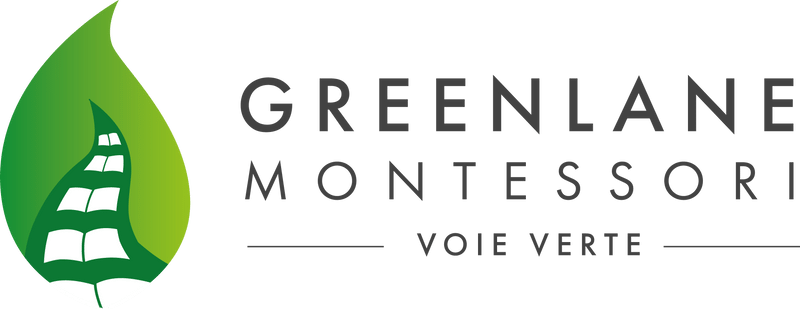
Greenlane Montessori's Curriculum
THE MONTESSORI METHOD
Montessori teaching is a practice whereby the child’s individuality is respected.
At Greenlane Montessori, our team will encourage your child to follow their unique interests so they can explore, learn and grow at their own pace.
The Montessori method of education centres on developing the child’s whole self and allowing a child to lead their own development. Respecting the child is at the core of this approach!
Who is Maria Montessori
Dr. Maria Montessori’s (1870-1952) philosophy is based on the theory that each child should be free to work at their own pace with the materials they have chosen. The most important ages of learning are from birth to age six, Maria focused on individualised learning to develop social, cognitive, physical, and creative skills at this most important time of the child's life.
Dr. Montessori saw children for their natural desire to learn. Greenlane Montessori uses this philosophy of education and aims for the highest development and prepares the child for many experiences the world has to offer.
Dr. Montessori described a child’s mind between ages of birth to six as “the absorbent mind”. This is the stage where the child has without conscious effort the ability to assimilate and learn the world around him. Montessori educators are highly aware of these stages and work with these advantages through introduction of appropriate materials designed to stimulate the mind.
Montessori method focuses on the model of self-exploration, when a child works at his or her own pace they strive towards independence. Children motivated themselves to learn and develop the skills needed for concentration and determination.

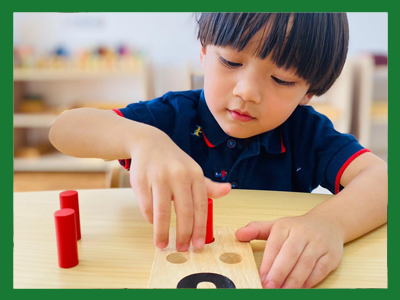
Montessori Principles
A Montessori environment is carefully planned and prepared to meet the needs of the child, and children have the liberty within that environment to choose materials based on their interests and ability. We do this by offering a wide variety of equipment, tools and materials for them to choose whatever feels right.
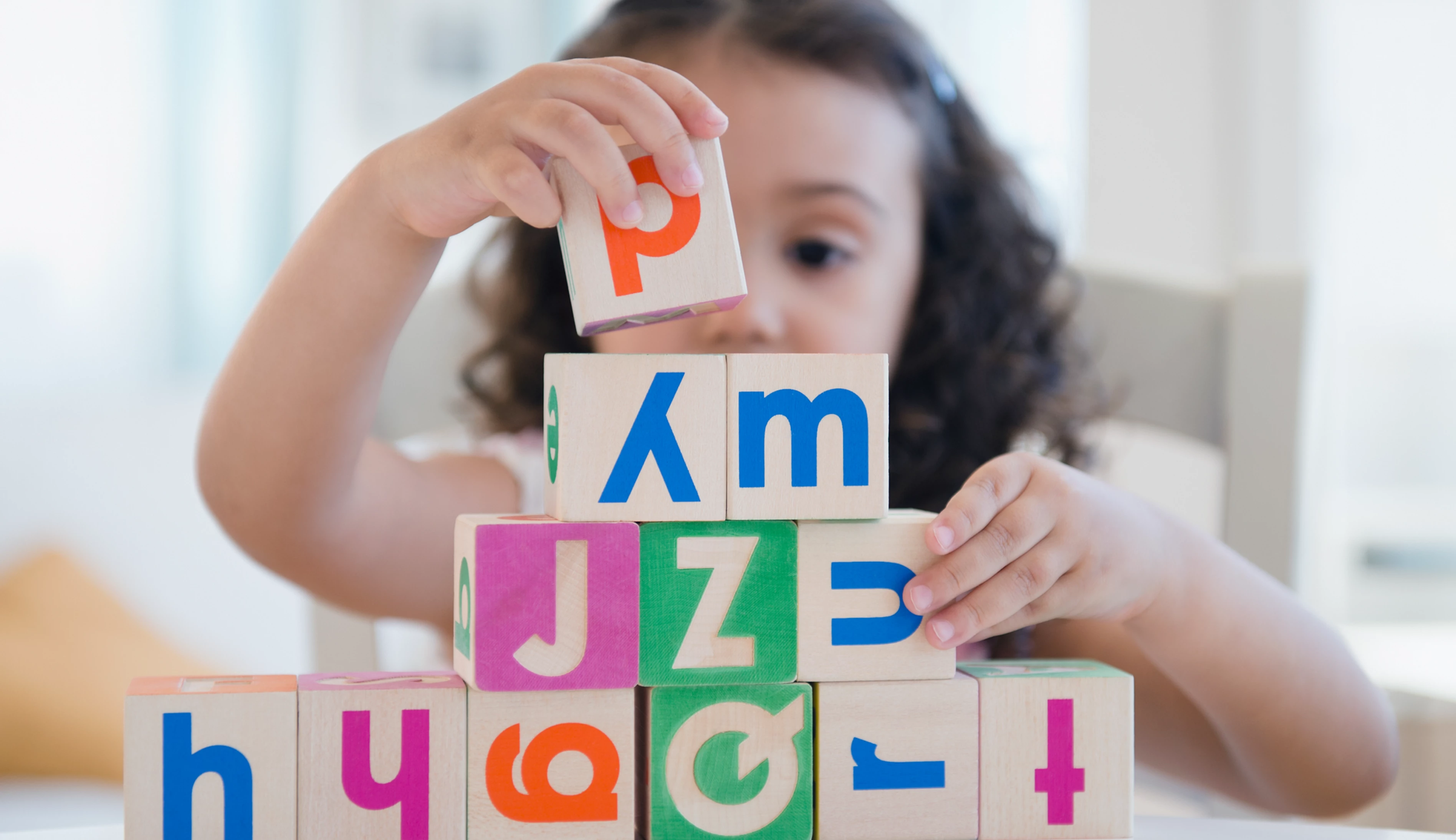
The Montessori curriculum is divided into five categories that target specific skills and outcomes. As our children make their way through the Montessori curriculum, they will be exposed to more challenging materials according to their skills and age. Our classrooms are organised by difficulty and children can advance to different classrooms based on applied or academic learning. Montessori classrooms are set up perfectly to deliver the 5 areas of Montessori learning. These being:
Our classrooms are set up perfectly to deliver the 5 areas of Montessori learning, including two additional domains that make our daily programming unique to our school:
Numeracy
Language
Culture
Sensorial
Practical Life
French
Zoology
Mathematics/Numeracy
Math in a Montessori classroom uses abstract exercises and sensorial materials. The Montessori method works to progress from working with concrete materials to abstract thinking. Sensorial materials such as counting beads and numeral cards are used and are set up in levels of difficulty in the classroom for children to work through independently. Our Math curriculum focuses on addition, subtraction, multiplication, division, numbers, units, and the concepts of quantity.
Language
Through language-based activities (English & French) both written and spoken skills are explored. Concrete materials are used to develop the child’s ability to read, write and learn to communicate their unique feelings and thoughts.
Culture
The culture curriculum allows the child to explore themselves and the world they live in. They are presented with opportunities to understand similarities between their own and others and learn to respect and appreciate what it means. Cultural studies are presented to your child through lessons on science, history, geography, zoology, art, music, and physical education.
Sensorial
Sensorial curriculum aims to develop the Child's intellectual senses enhancing your child’s ability to observe and compare. Sensorial exercises develop skills in visual perception, auditory sense, and tactile impressions. Sensorial activities aim to sharpen the quality of the five senses through texture, smell, colour, shapes, temperature, weight, taste, sound and dimension. These activities develop children’s way of abstract thinking and ability to form mental images.
Practical Life
The Practical Life curriculum focuses on the Child's need to learn about themselves and others. Our exercises focus on understanding courtesy and grace and helping our environment. These teach your child how to blossom an interest and be involved in and out of the home. Practical Life exercises promote mind and body movement, coordination, focus, attention, self-help, exploration and care for the environment, which are all important goals of the Montessori methods.
We believe that by following this approach, our student’s self-esteem will come from an internal sense of pride in their own accomplishments and the freedom to focus on the things that interest them the most!
French
French is incorporated in Greenlane Montessori's curriculum and is offered in all the programs. Following the Montessori philosophy and methodology, our teachers and educators help children to develop different areas of language such as: spoken language, perceived language, phonemic awareness, creating words, and reading in both English and French. French is also offered alongside other areas of Learning such as math, science, zoology, culture, and practical life. Students are introduced and exposed to new vocabularies on a daily basis and are encouraged to express their needs, interests, and ideas in French
Zoology
Animals are one of the favourite topics for children. Montessori zoology provides children with a variety of learning opportunities and lessons to develop more knowledge and understanding. We start teaching the children different categories and sub-groups of the animals as well as their habitats and needs for protection, respiration, reproduction, and nutrition through cards, classification games, and books.
Mathematics/Numeracy
Math in a Montessori classroom uses abstract exercises and sensorial materials. The Montessori method works to progress from working with concrete materials to abstract thinking. Sensorial materials such as counting beads and numeral cards are used and are set up in levels of difficulty in the classroom for children to work through independently. Our Math curriculum focuses on addition, subtraction, multiplication, division, numbers, units, and the concepts of quantity.
Language
Through language-based activities (English & French) both written and spoken skills are explored. Concrete materials are used to develop the child’s ability to read, write and learn to communicate their unique feelings and thoughts.
Culture
The culture curriculum allows the child to explore themselves and the world they live in. They are presented with opportunities to understand similarities between their own and others and learn to respect and appreciate what it means. Cultural studies are presented to your child through lessons on science, history, geography, zoology, art, music, and physical education.
Sensorial
Sensorial curriculum aims to develop the Child's intellectual senses enhancing your child’s ability to observe and compare. Sensorial exercises develop skills in visual perception, auditory sense, and tactile impressions. Sensorial activities aim to sharpen the quality of the five senses through texture, smell, colour, shapes, temperature, weight, taste, sound and dimension. These activities develop children’s way of abstract thinking and ability to form mental images.
Practical Life
The Practical Life curriculum focuses on the Child's need to learn about themselves and others. Our exercises focus on understanding courtesy and grace and helping our environment. These teach your child how to blossom an interest and be involved in and out of the home. Practical Life exercises promote mind and body movement, coordination, focus, attention, self-help, exploration and care for the environment, which are all important goals of the Montessori methods. We believe that by following this approach, our student’s self-esteem will come from an internal sense of pride in their own accomplishments and the freedom to focus on the things that interest them the most!
French
French is incorporated in Greenlane Montessori's curriculum and is offered in all the programs. Following the Montessori philosophy and methodology, our teachers and educators help children to develop different areas of language such as: spoken language, perceived language, phonemic awareness, creating words, and reading in both English and French. French is also offered alongside other areas of Learning such as math, science, zoology, culture, and practical life. Students are introduced and exposed to new vocabularies on a daily basis and are encouraged to express their needs, interests, and ideas in French
Zoology
Animals are one of the favourite topics for children. Montessori zoology provides children with a variety of learning opportunities and lessons to develop more knowledge and understanding. We start teaching the children different categories and sub-groups of the animals as well as their habitats and needs for protection, respiration, reproduction, and nutrition through cards, classification games, and books.
Culinary Experience
This interactive experience fosters a deeper understanding and appreciation for the art of cooking. Through this engaging journey, children not only enhance their culinary skills, but also develop a broader perspective on healthy eating setting the stage for a lifetime of mindful food choices.
Botany
Seasonal Botany Sessions, tailored to provide children with an immersive outdoor experience amidst lush greenery. These sessions offer a hands-on opportunity for young minds to explore the wonders of nature, fostering a deeper connection with plants and the environment. From planting seeds and tending to gardens, to learning about seasonal changes and plant life cycles.
Montessori Processes
INDEPENDENCE
Montessori education aims to make the child independent and able to do things for themself. When our students can do things for themselves they develop their self-belief, self-confidence and self-esteem which they can carry on throughout their life.
Observation
Through observation we can learn about what our students need. For example, if a child starts banging on objects, it means they need gross motor activity, so we would give them a drum. This is how observation can help create harmony, fulfilling the child’s current needs.
Following The Child
If you follow a child, they will show you what they need to do, what they need to develop in themselves and what area they need to be challenged in! We give our students the freedom to choose what they want or need to do and to act on their own.
Correcting The Child
Children make mistakes! This is an opportunity for our team to ask students to do valid practical work that will teach them safely and positively how to recognise this and how they can learn from these incidents.
Prepared Environment
The prepared environment is an important part of Montessori teaching. It is the link for a child to learn from adults. Rooms are child-sized with activities set up for success allowing freedom of movement and choice. The environment has to be safe for the child to explore freely.
Absorbent Mind
The idea for the “absorbent mind” believes that children under the age of three do not need to have lessons to learn as they simply absorb everything in the environment by experiencing it and being part of it. The language of the adult is one that a child will easily pick up.
Curriculum
Academic Learning
Our early childhood education curriculum is the stepping stone to future success in academic learning. There is a big difference between babysitting programs and a learning centre like Greenlane Montessori.
Creativity
In Greenlane Montessori, we encourage creativity and use this as a tool to nurture a child's emotional health. The first years of a child's life are made of experiences that can significantly enhance the development of their creativity.

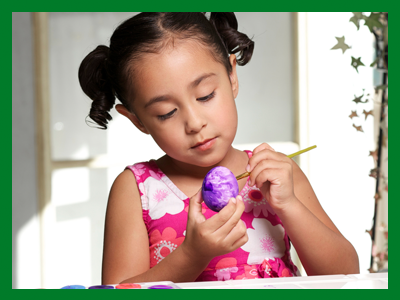
Social Skills Development
We create an environment that stimulates healthy social interactions between children as studies show that children who develop good social skills at a young age are more likely to become successful adults.
Cognitive Development
Child care quality directly impacts the cognitive development of children. We promote cognitive skill development in children with activities that provide progressive building of learning skills, such as attention, memory, and thinking.
Enrichment
Greenlane Montessori offers a comprehensive array of extracurricular activities to complement the daily curriculum. All our extracurricular activities are being offered to all children attending any of our programs.
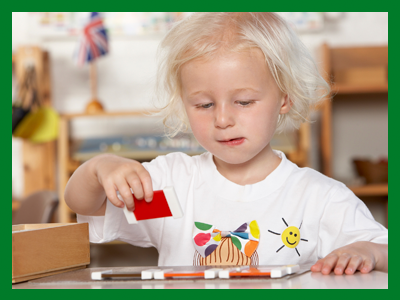
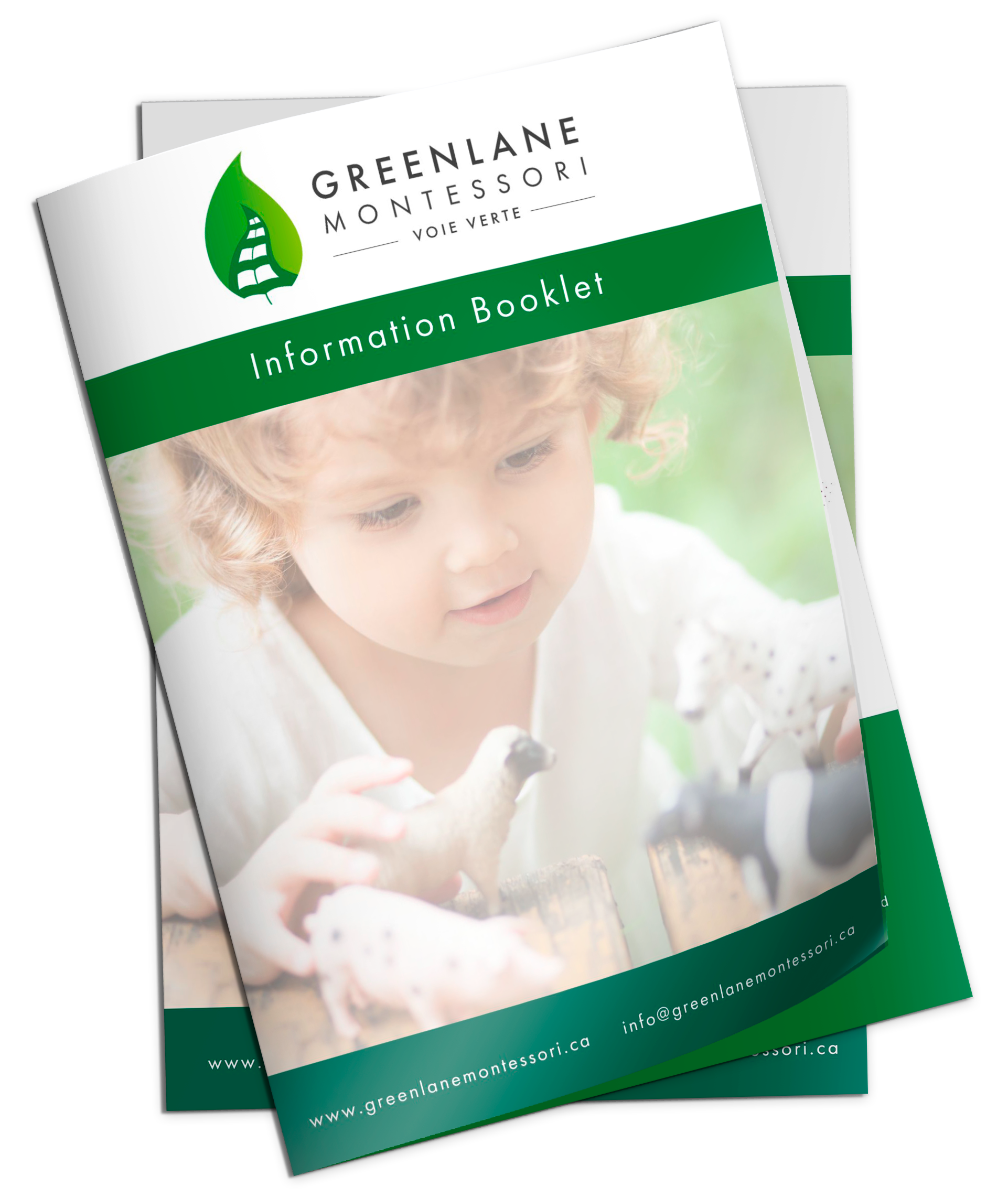

Get Our Free Information Booklet

We know that choosing a school is a very personal choice, based on many different factors. To make sure that your choice of school aligns with your lifestyle, we’ve pulled together some useful information and added it to our Information Booklet which is available to download via the link below.
Contact Us
18295 Yonge St,
East Gwillimbury, ON L9N 0A2


Privacy Policy | Copyright © 2023 Greenlane Montessori
Here’s What Our Happy Parents Have To Say
We LOVE our parents and carers and we're so proud to share some of their thoughts with you…
We are currently recruiting
Click here to find out more.

